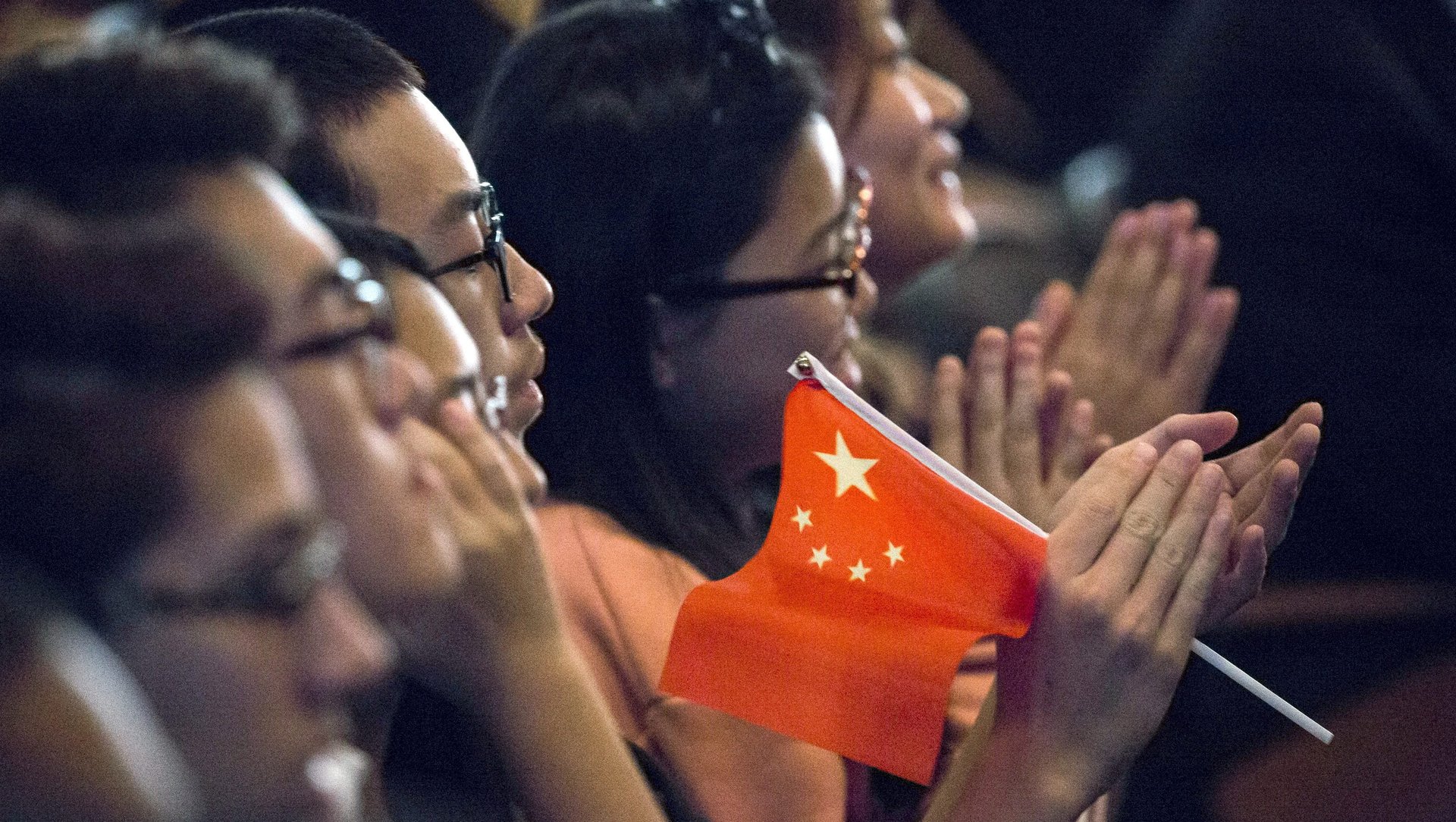China’s Communist Party briefly had a chapter at a California university
Seven Chinese scholars visiting the University of California, Davis, set up a local chapter of China’s Communist Party to guard against the “corrosion” of western ideas—only to realize they had set up a potentially illegal organization under US law.


Seven Chinese scholars visiting the University of California, Davis, set up a local chapter of China’s Communist Party to guard against the “corrosion” of western ideas—only to realize they had set up a potentially illegal organization under US law.
Mu Xingsen, a visiting thermal engineering scholar from China’s University of Dalian Technology, founded the party branch in early November—an act that Mu’s university praised as “setting an example for overseas party members.” The idea was to study party doctrine, including lessons from the just-concluded 19th Party Congress, according to the South China Morning Post, which first reported on the chapter.
The branch, made up of six party members and one probationary member, held its first meeting on Nov. 4, at the Davis campus. The group discussed various topics, including differences between the Chinese and American political systems. The group members “reminded each other of the possible dangers caused by the large-scale riot brought by the imminent attacks from local terrorist group Antifa,” according to an account (link in Chinese) from Mu’s school on Nov. 9. The notice has since been removed. The term “Antifa” originated with European groups opposed to fascism in the 20th century, but is now being used for US left-wing activists who strongly—and occasionally violently—protest Trump and white nationalists.
Mu’s branch was originally planning to promote itself to colleagues and neighbors from China, with a plan to hold meetings every two weeks. Such a branch would help overseas Chinese scholars avoid negative mind corrosion from being subjected to the “news environment abroad,” said a cached version of the deleted report, and help party members keep track of one another.
That didn’t go as planned. Mu, who was selected as the branch’s party secretary during the first meeting, told the SCMP that the branch had been dissolved over the past weekend, citing concerns about violating “local laws” without elaborating. One possibility is that Mu’s branch could be considered an agent of a foreign political party. Under America’s Foreign Agents Registration Act (FARA), individuals and groups acting on behalf of a foreign political party must register with Department of Justice in advance. Party branches play a grass-roots education role, and the party requires every member to be part of one. Mu didn’t immediately reply to Quartz’s request for comment.
Mu’s case comes amid growing concern about China’s political influence in academic settings overseas, as large numbers of Chinese students head out to study in countries including the US, the UK, and Australia. Campuses with large numbers of Chinese foreign students have faced pressure over activities perceived as unflattering to China. In February, Chinese students and alumni from the University of California, San Diego expressed disapproval of the school’s commencement invitation to the Dalai Lama, whom Beijing views as a dangerous separatist. Later, a branch of the Chinese government barred Chinese scholars from receiving state funding to study there.
In September, the chief of an association representing Australia’s elite universities said that there have been instances of Chinese government interference in the country’s campuses, though she described them as “isolated” and said the response should be measured.
Last week, the US-China Economic and Security Review Commission, a bipartisan US Congressional group, made a recommendation that Congress should amend FARA (pdf, p. 4) so that Chinese state media employees can be registered as foreign agents, citing concerns over “intelligence gathering and information warfare.”